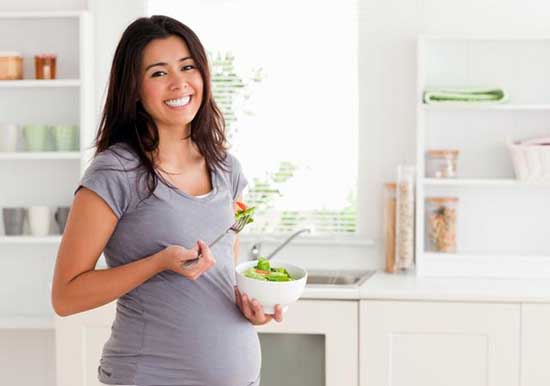The pregnant woman's diet should be fresh, bland, nutritious, light, and moderate in amount.
First trimester of pregnancy (three months since conception): Small amount of fine diet is advisable due to the slow fetal development as well as the reaction of pregnancy. The pregnant woman may select the food suitable for her taste and slightly sour orectic food, fresh vegetables and fruits being the best ones. However, the fishy, pungent and irritative foods should be contraindicated to avoid aggravating the vomiting of pregnancy. More information, please click to read Pediatrics Nourishing the Kidney.

Second trimester of pregnancy (four to seven months in pregnancy): The fetus grows fast. Ingestion of food rich in protein, calcium and phosphorus is advisable for the pregnant woman. Paddy, beans, meat, fish and eggs contain rich proteins. Calcium exists in yolk, milk, dried small shrimps, animal skeletons and green leafy vegetables; phosphorus in soybean, chicken and mutton. Eating these foods can promote tissue growth, strengthen the bone, benefit marrow, tonify the brain to promote the fetal development.
Third trimester of pregnancy (eight to ten months in pregnancy): The fetal growth and development accelerate. This is the crucial period for the cerebral development. Thus, more nutrients should be stored. The pregnant woman should eat more fine proteins, pay attention to a proper proportion of animal protein and vegetable protein, eat less salt and basic food to prevent edema. The pregnant woman should avoid irritative foods like hot pepper, sensitized foods like crab meat, and river deer and hare. It is advisable for her to give up smoking, drinking spirit and strong tea in case abortion, premature labor, dead fetus, monster and congenital diseases should occur. More information, please click to read Activating Blood Circulation.







